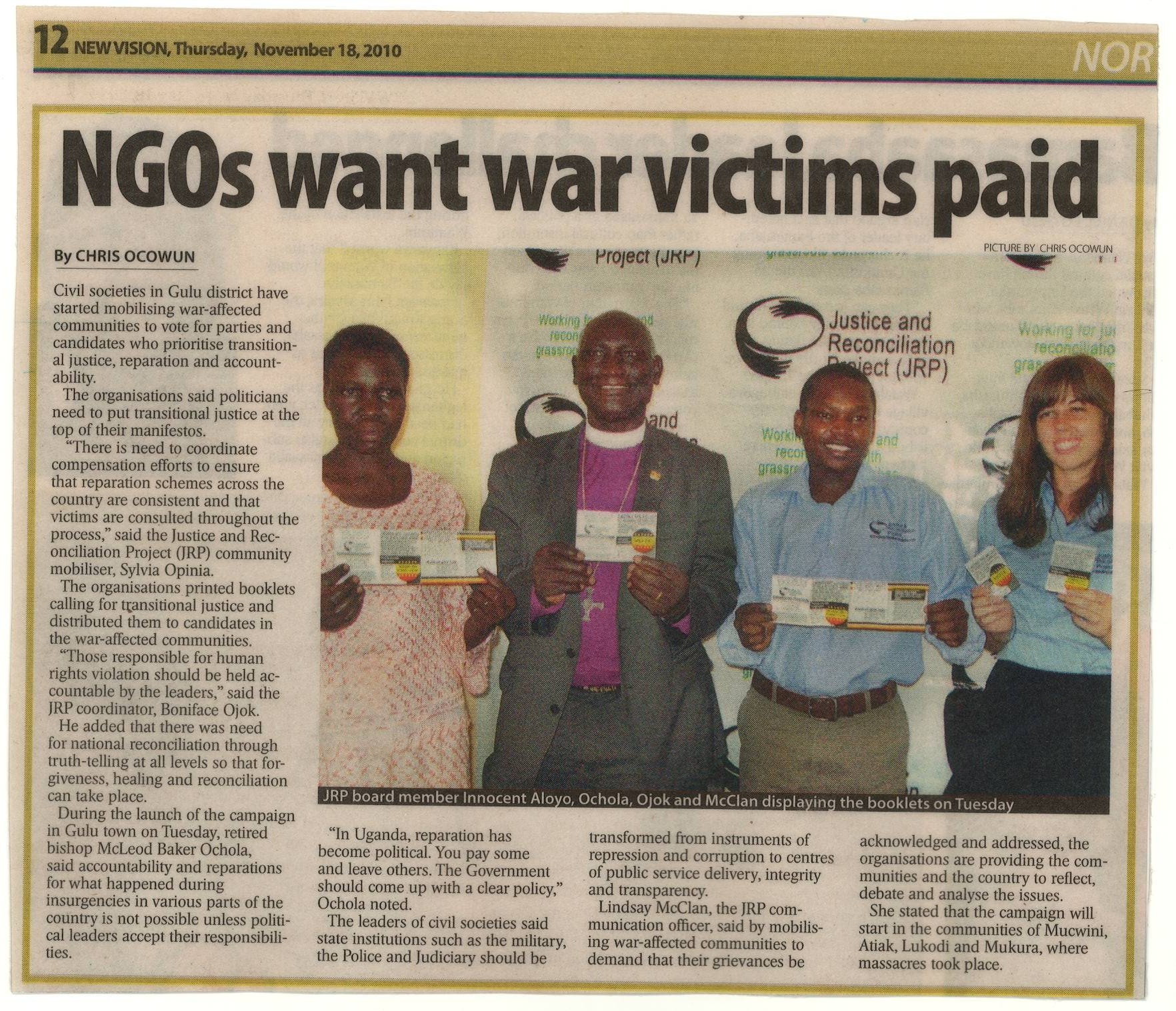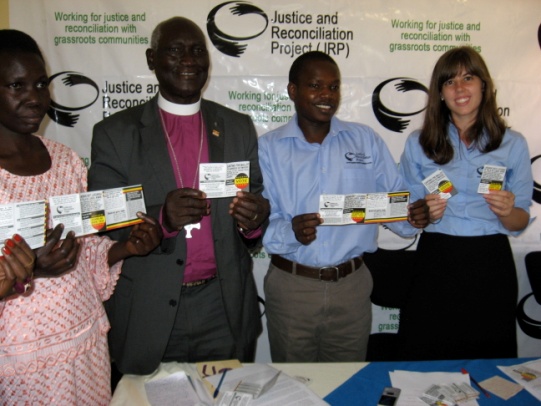FOR IMMEDIATE RELEASE
November 23, 2010
Enhancing grassroots involvement in transitional justice debates
GULU / ARUA / SOROTI— Today the Justice and Reconciliation Project (JRP), in partnership with the South Africa-based Institute for Justice and Reconciliation (IJR), commences a series of grassroots consultations in northern Uganda to explore local perspectives on transitional justice.
The first consultation, to be held November 24-25 at Slumberland Hotel in Arua Town, will engage local-level, grassroots persons directly affected by conflict to ensure that their opinions are not left out of the wider discussions. Thirty participants, comprising primarily of victims and victims’ groups and religious and cultural leaders from across the sub-region, will convene to share views on truth-seeking, traditional justice, community reparations and gender justice.
Subsequent consultations will be held in Gulu/Lango from December 1-2 and Teso sub-region from December 8-9. The findings will be presented at a regional meeting early next year and will work to influence policy recommendations for the implementation of key transitional justice mechanisms in the region.
These consultations are part of a larger JRP/IJR project, titled “Enhancing Grassroots Participation in Transitional Justice Debates,” which aims to intensify local advocacy and consultation of victims in northern Uganda around issues of transitional justice ahead of the 2011 presidential and parliamentary elections. Over the next three months, JRP/IJR will hold extensive consultations with a broad range of stakeholders, including grassroots communities, JLOS (Justice, Law and Order Sector), CSOs and local government leaders to gain a clearer sense of how justice needs can be met.
Media are invited to attend the opening and closing sessions of each of the regional consultations. For more information, email info@justiceandreconciliation.com or call Lindsay McClain, JRP Communications Officer, at +256 (0)471433008 or +256 (0)783300103. Or, visit us on the web at www.justiceandreconciliation.com or www.ijr.org.za.
About JRP
The Justice and Reconciliation Project (JRP) promotes locally sensitive and sustainable peace in Africa’s Great Lakes region by focusing on the active involvement of grassroots communities in local-level transitional justice. They are based in Gulu, northern Uganda.
About IJR
The Institute for Justice and Reconciliation (IJR) promotes for reconciliation and socio-economic justice in Africa through strategic partnerships and carefully constructed interventions. They are based in Cape Town, South Africa.
To download this press release, click here.



